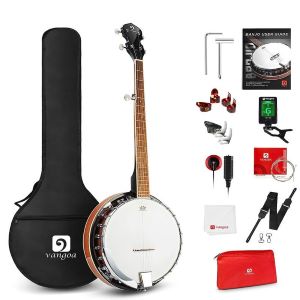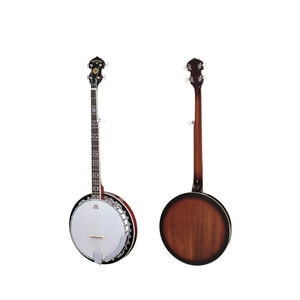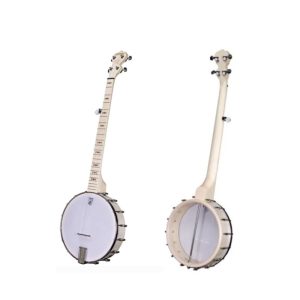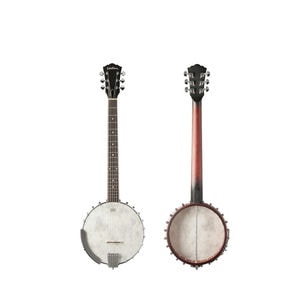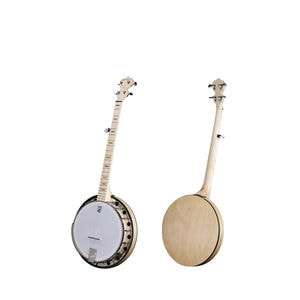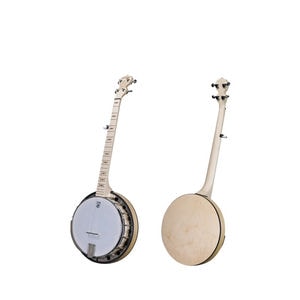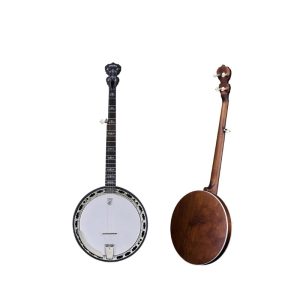Welcome to a harmonious journey into the world of banjos, where we’ve curated a selection of the finest instruments for players of all levels and styles.
Whether you’re a first-time buyer eager to embark on your musical journey or an experienced player seeking an upgrade, our guide to the best banjos has you covered.
Top 7 Overall Picks:
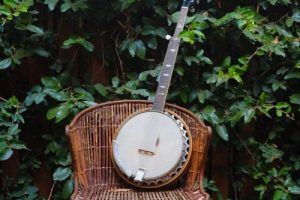
Choosing Your First Banjo?
For First-Time Buyers
Navigating the world of banjos for the first time? Our guide will lead you through key considerations and recommend a perfect starter kit.
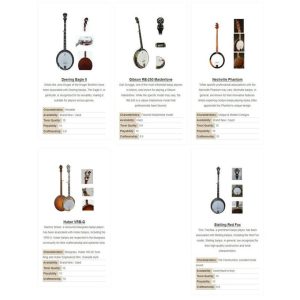
Upgrade Your Sound
For Experienced Players
Seasoned players, elevate your sound with our guide on upgrading to a banjo that matches your skill and style.
The Best Banjos by Playing Style and Type
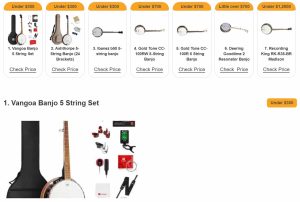
Banjos for Bluegrass
Dive into the world of Bluegrass with our top picks that deliver on tone, volume, and responsiveness.
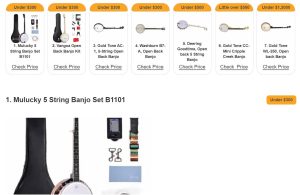
Clawhammer Banjos
Uncover the soulful charm of Clawhammer playing with banjos that capture the essence of this traditional style.
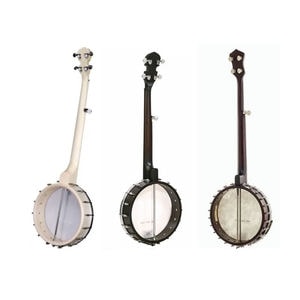
Open-Back Banjos
Discover the top choices for a mellower, open sound.
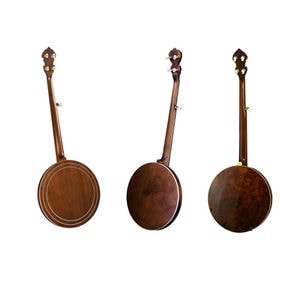
Resonator Banjos
Explore banjos designed for projection and a distinctive resonance.
Banjo Buying FAQ Section
Since now you know all about banjos and have seen some truly impressive options, let’s go over some frequently asked questions about these instruments. That way, when it comes time to make a purchase, you can proceed with confidence.
• Which is better, an open-back or closed-back (resonator) banjo?
Both open-back and closed-back (resonator) banjos have a lot of similarities. They’re played in the same way, but create slightly different sounds and tones.
Open-back banjos are often played clawhammer style without a pick and their strings are a bit further out from the fretboard. These banjos are often lightweight and great for travel. Open-back banjos are ideal for playing certain types of Folk music.
Closed-back resonator banjos have a piece of wood that provides lots of acoustic resonation. These banjos can easily be played with or without a pick. They’re a bit heavier than open-back banjos but do create an impressive and rich sound. Resonator banjos are great for Bluegrass music, Country, Jazz, and more.
Both banjos styles are great options for players at any level. It will all come down to your own personal style and utility needs. If you’re unsure which type of banjo to choose, we would recommend opting for a closed-back resonator banjo. That way, you’ll have more flexibility in the style and sound.
• Who is the best banjo player of all time?
There have been many infamous banjo players over the last 100 years! Without a doubt, top players include Bela Fleck, Charlie Pools, Peet Seeger, and of course, Earl Scruggs. Steve Martin also plays the banjo! Finally, you’ll hear some amazing banjo riffs from bands like Trampled By Turtles and Mumford and Sons.
• How much should I pay for a Banjo?
Banjo prices can vary based on quality, brand, material construction, seller, and size. Other factors like tone and style may also influence the price of a banjo. So how much should you pay? Well, that’ll depend heavily on your budget and needs.
Used low-quality banjos may be purchased for as little as $40. Premium designer banjos with custom features or collectible designs may cost you thousands of dollars.
To determine how much you should pay, think about what applications you will be using your banjo for. If you’re looking for a cheap backup banjo or want to learn how to play but aren’t sure if you’ll stick with it, opt for something between $100-200.
If you are an accomplished banjo player and want something nice, you may want to spend between $400-$1,000 to get something really nice. Finally, if you’re a relatively new player who wants a better banjo because you plan to start playing regularly, a durable and well-made banjo in the $250-$500 range should do nicely.
Conclusion
Now, it’s time to take your passion to the next level. Whether you’re eyeing one of our top 7 overall picks, exploring banjos by playing style and type, or embarking on the journey of choosing your first banjo, your perfect instrument awaits.

